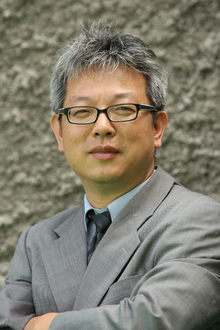 |
The widely held view is that this discourse originated in the negative side effects of the reform and openness China has been in an all-out pursuit of over the last 20 years. The market has inflated at a dizzying pace, and that has led to a massive disparity between rich and poor, rural and urban areas, and between regions. Those who have always considered a market economy the best to shoot for considered it a necessary evil." "Harmonious society" is a call for the rejection of the belief that the market is everything, and for a return to the principles of socialist ownership. Thus, it means an ideological transformation for the CCP. The jokes demonstrate that the masses have yet to have much confidence in the "harmony" campaign. The worry is that discourse about a "harmonious society" might be a rhetorical attempt to downplay the real issues, which, in turn, means that the negative side effects of reform and openness are that serious and hard to deal with. Right now, there are some 200 million poor farmers and workers living in poverty in Chinese cities while being paid no more than "rats’ tails." Farmers are fighting the police with rocks as they try to keep their land from being taken away. Last year there were some 87,000 public protests across the country. This "harmonious society" is an ambitious bit of work on the part of Hu and the rest of China’s "Fourth Generation" leadership. They directed this film and wrote the script. The party, government agencies, and the official media are all playing the main and supporting characters as they work out the full details. The stage is Chinese politics, economics, and culture. It’s a blockbuster because it is being shown to China’s 1.3 billion citizens. But will this flick really succeed? If I were to make my own prediction, while borrowing from the tone of the harmony jokes, this is what I’d say: "Lately we are seeing an experimental work in progress, of the likes rarely seen in China. It is a harmony of documentary and cartoon techniques. Success will be determined by whether the passion of the film itself wins the audience’s support." [englishhani@hani.co.kr]





